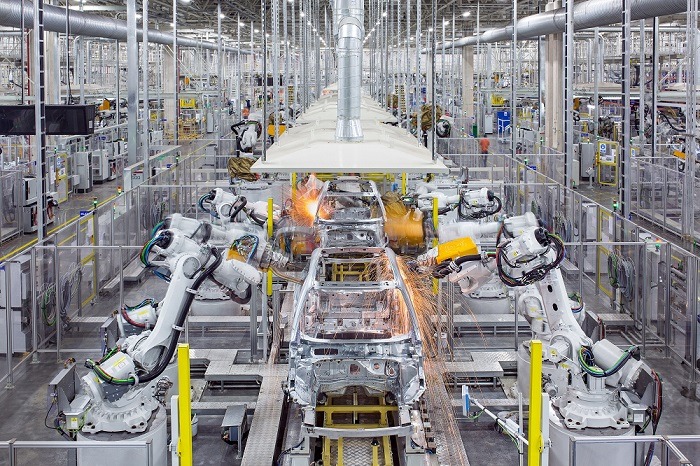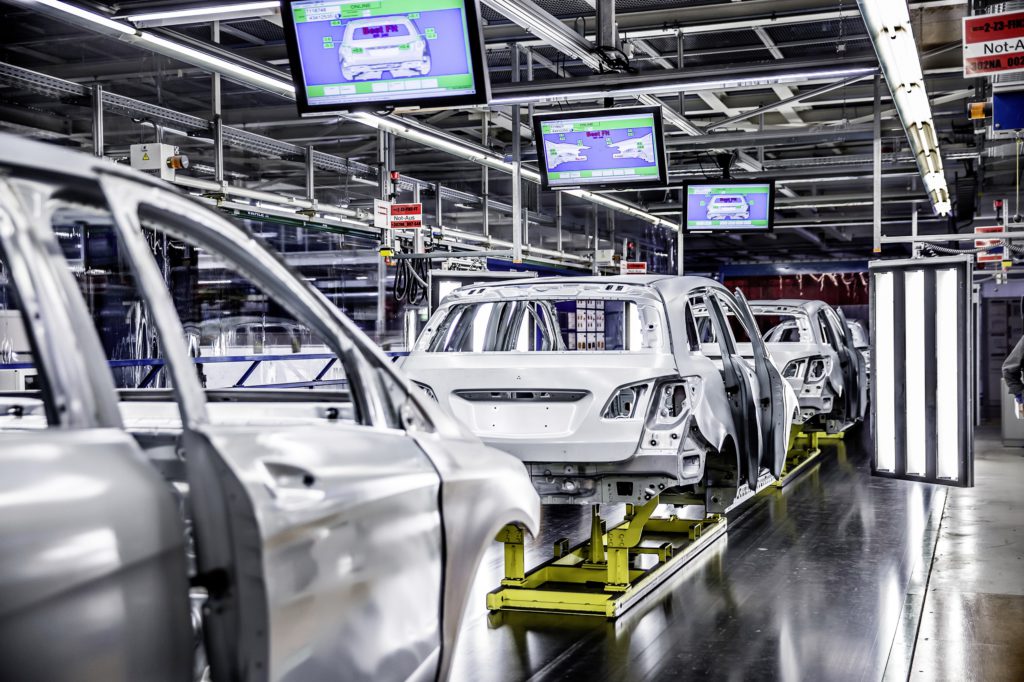Two more automotive companies sign up to use fossil-free steel
06 September 2021

Mercedes-Benz and vehicle-parts supplier Faurecia have become the latest automotive companies to sign a deal with Swedish steel manufacturer SSAB for carbon-neutral steel.
As more businesses within the industry look to reduce their carbon footprints, attention is turning to the supply of crucial automotive materials and the need for them to be produced as sustainably as possible. Earlier this year, SSAB announced Volvo as its first automotive partner for its new fossil-free production steels.
Mercedes-Benz and SSAB are already setting out the course for the introduction of green steel into vehicles as quickly as possible. The first prototype parts for bodyshells made of the CO2-free product are expected to start production in 2022.
‘Mercedes-Benz takes every opportunity to reduce emissions quickly and sustainably,’ the carmaker stated. ‘By the end of the decade, the company will be ready to go all-electric wherever market conditions allow. With this strategic step from “Electric first” to “Electric only”, Mercedes-Benz is accelerating the transformation to an emission-free and software-driven future.’
By 2039 at the latest, the Mercedes-Benz passenger-car fleet will become CO2 neutral along the entire value chain, including the supplier network. The carmaker is deliberately focusing on avoiding and reducing CO2 emissions instead of paying compensation – such as planting trees to offset carbon emissions. The partnership with SSAB is another important step towards this goal.
‘We are extremely happy to welcome Mercedes-Benz as a partner for fossil-free steel products,’ said Martin Lindqvist, president and CEO of SSAB. ‘Together, we are building an entirely fossil-free value chain all the way to the end customer. We are proud to reduce global carbon-dioxide emissions in collaboration with our new partner.’
Zero-carbon seating
For Faurecia, SSAB will explore the development of fossil-free advanced high-strength steel for use in the automotive-seating business. The deal makes the parts supplier the first in the industry to explore the use of fossil-free steel in its components.
Faurecia will start equipping its seating structures with green steel from 2026 as part of the collaboration.
‘We have been strengthening our cooperation and increasing our business with Faurecia for some time with the focus on advanced high-strength steels, making car components stronger, lighter and safer,’ added Lindqvist. ‘Now we are committed to bringing our cooperation to the next level by introducing SSAB Fossil-Free AHSS steels increasingly from 2026 and onwards, to contribute to Faurecia´s decarbonisation targets and reduce global CO2 emissions.’
Hydrogen-based production
SSAB aims to be completely fossil-free and remove its CO2 emissions completely by 2045. In 2016, the company, together with iron-ore producer LKAB and energy firm Vattenfall, announced the HYBRIT initiative. This programme will see the blast-furnace process, which causes around 90% of the carbon-dioxide emissions in steelmaking, replaced by electric arc furnace technology using direct reduced iron, or sponge iron, obtained using green hydrogen.
The new technology removes the use of fossil coking coal needed in the production of crude iron. The remaining fossil fuels needed in production will be replaced with biogas or by electrifying the processes.
SSAB aims to reduce Sweden’s CO2 emissions by 10% and those in Finland by 7% through the HYBRIT technology. In 2026, the company plans to supply the market with fossil-free steel at a commercial scale after the conversion of its Oxelösund blast furnaces to an electric arc furnace.


